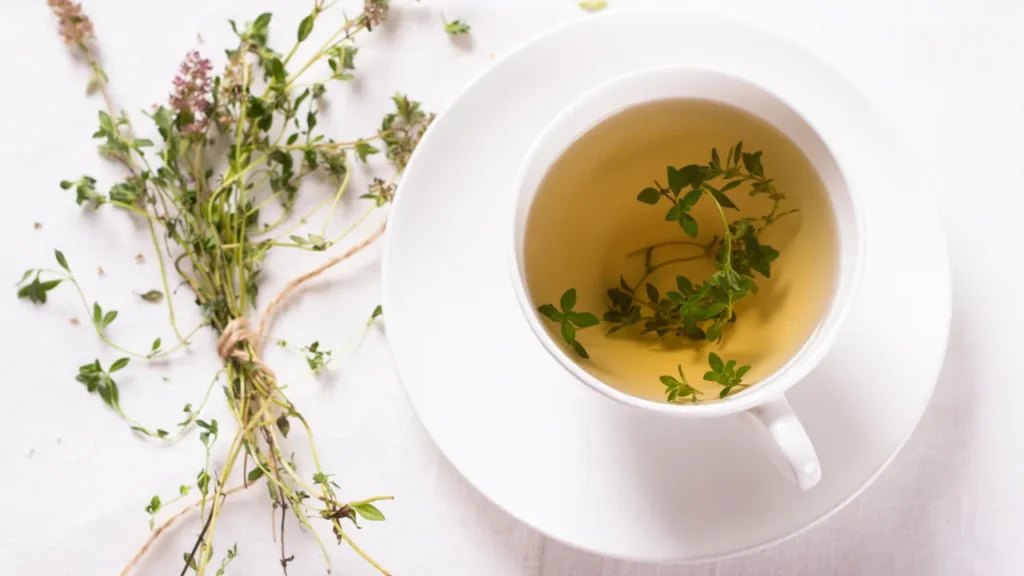The popular culinary herb thyme comes from the plant thymus vulgaris, which is a member of the mint family. Beyond its widespread use as a flavoring for food, thyme has recently drawn more interest for its possible health advantages, especially in relation to improving focus, alertness, and cognition. This article explores the properties of thyme, including its health advantages, ideal dosage, side effects, possible interactions with other substances, and responsible use as a nootropic supplement.
You May Also Like:
Xylitol: Benefits, Dosage, Side Effects, Drug Interactions, And Other Important Information
Water Avens: Benefits, Dosage, Side Effects, Drug Interactions, And Other Important Information
Thyme: Benefits, Dosage, Side Effects, Drug Interactions, And Other Important Information is an original (NootropicsPlanet) article.
Nature of Thyme
Although thyme is indigenous to the Mediterranean region, its aromatic and culinary properties have made it popular throughout the world. Thymol, carvacrol, p-cymene, and γ-terpinene are the main chemical components that give thyme its unique flavor and aroma. Thymol in particular is known for its antibacterial and antibiotic properties, which have been used for ages in traditional medicine.
Health Benefits of Thyme
Thyme’s high composition of flavonoids and essential oils is primarily responsible for its wide range of health benefits. It is thought that these substances have antibacterial, anti-inflammatory, and antioxidant properties. The potential benefits of thyme for improving alertness, focus, and overall brain function are the main focus when it comes to cognitive health.
- Antioxidant Properties: Thyme contains a high level of antioxidants, which can neutralize free radicals in the body. Free radicals are unstable atoms that can cause damage to cells, leading to chronic diseases and aging. By combating oxidative stress, thyme can contribute to improved cognitive health and prevention of neuro-degenerative diseases.
- Anti-inflammatory Effects: Inflammation is a critical response to injury or infection but can contribute to various diseases when it is chronic. Thyme’s anti-inflammatory properties can help reduce brain inflammation, which is associated with cognitive decline and mental health disorders.
- Antimicrobial Activity: Thymol and carvacrol in thyme have been shown to possess strong antimicrobial properties. These compounds can inhibit the growth of bacteria and fungi, potentially reducing the risk of infections that could impact brain health.

Chemistry of Thyme and Its Impact
The most researched parts of thyme’s complex and rich chemistry are its flavonoids and essential oils. Thymol, the primary constituent, and carvacrol are responsible for thyme’s antibacterial and anti-inflammatory properties as well as its possible nootropic effects. The blood-brain barrier, a selective barrier that shields the brain, is permeable to several substances. Once within the brain, they can enhance neuronal communication, promote neuro-genesis (the creation of new neurons), and have neuro-protective effects.
Although the precise processes by which thyme affects the brain are still being researched, available data indicates that certain of its constituents can interact with different biochemical pathways related to mental health and cognition. For example, the antioxidant effects of thyme can reduce oxidative damage to DNA, proteins, and lipids within brain cells, thereby preserving cellular function.
Physiological Properties of Thyme’s Effect on the Body and Brain
There are several different ways that thyme affects the body and brain. One of the main active ingredients in thyme, thymol, has been shown to influence neurotransmitter function, specifically acetylcholine and gamma-aminobutyric acid (GABA). Throughout the nervous system, GABA, the primary inhibitory neurotransmitter in the brain, is essential in lowering neuronal excitability. Thymol’s soothing effects may be partly attributed to its affect on GABA receptors, which can also help reduce anxiety and improve focus.
Another essential neurotransmitter for memory and learning is acetylcholine. Thyme has the potential to enhance memory formation and cognitive function by modifying acetylcholine levels. Additionally, thyme’s antioxidant properties can shield neurons from oxidative stress, promoting long-term brain health and function.
Thyme’s anti-inflammatory properties are mostly responsible for its cognitive advantages. Depression and Alzheimer’s disease are just two of the many cognitive illnesses that have been connected to chronic inflammation. Thyme can assist in shielding the brain from these illnesses by regulating the body’s inflammatory response, therefore promoting better cognitive health and performance.

Optimal Dosage of Thyme
The best way to take thyme for nootropic effects relies on a number of factors, including the your goals and current state of health as well as the type of thyme being used—fresh, dried, or essential oil. Most individuals believe using thyme in their cooking to be safe.
However, caution is highly encouraged when taking thyme as a supplement, especially if it’s in the form of an essential oil. Because they are so concentrated, essential oils ought to be used sparingly. It is advised to begin with a low dosage and speak with a healthcare professional to determine the right dosage for a given set of circumstances.
Side Effects of Thyme
Although thyme is generally safe to use in cooking, using thyme supplements incorrectly or consuming too much of it might have negative effects. These could include food disturbances, allergic responses, and drug interactions. For example, high doses of thymol can be harmful if applied topically undiluted or consumed in large dosages.
Potential Substance Interactions with Thyme
Certain vitamins and drugs can interact with thyme, changing the way they work. For instance, the anticoagulant properties of thyme can amplify the effects of blood thinners, raising the possibility of bleeding. Additionally, its effects on the central nervous system can cause sedatives or anesthetics to interact improperly. Before adding thyme supplements to your regimen, if you are on medication, you should speak with a healthcare professional.

Responsible Use of Thyme as a Nootropic
When considering thyme for its nootropic benefits, responsible use is paramount. This includes:
- Consultation with a Healthcare Provider: Before adding thyme supplements to your routine, especially if you have existing health conditions or are taking medication, consult with a healthcare professional.
- Adherence to Recommended Dosages: Follow the recommended dosages and guidelines for any thyme supplements, and be wary of potential side effects.
- Quality of Supplements: Opt for high-quality, reputable sources of thyme supplements to ensure safety and efficacy.
To harness the cognitive benefits of thyme while minimizing risks, several considerations should be taken into account:
- Individual Health Conditions: Individuals with health conditions, particularly those related to the liver or kidneys, should use thyme supplements with caution due to the potential for organ stress.
- Pregnancy and Breastfeeding: There is limited research on the safety of thyme supplements during pregnancy and breastfeeding. Women in these situations should consult healthcare providers before use.
- Age Considerations: The safety and efficacy of thyme supplements in children have not been well-established. Parents should seek medical advice before administering these supplements to children.
Thyme:
Conclusion
Thyme, an herb from the mint family, not only adds flavor to culinary dishes but also offers a host of health benefits. Remember to consult with a healthcare professional before incorporating any new supplement into your routine. Prioritize a holistic approach to health, combining proper nutrition, exercise, and medical guidance.

References:
- Focused Insight into Thyme: Biological, Chemical, and Therapeutic Properties of an Indigenous Mediterranean Herb. Retrieved From:https://www.ncbi.nlm.nih.gov/pmc/articles/PMC9147557/
- Thyme – Uses, Side Effects, and More. Retrieved from: https://www.webmd.com/vitamins/ai/ingredientmono-823/thyme
- What are the benefits of thyme? Retrieved from: https://www.medicalnewstoday.com/articles/284490
Important Note: The information contained in this article is for general informational purposes only, and should not be construed as health or medical advice, nor is it intended to diagnose, prevent, treat, or cure any disease or health condition. Before embarking on any diet, fitness regimen, or program of nutritional supplementation, it is advisable to consult your healthcare professional in order to determine its safety and probable efficacy in terms of your individual state of health.
Regarding Nutritional Supplements Or Other Non-Prescription Health Products: If any nutritional supplements or other non-prescription health products are mentioned in the foregoing article, any claims or statements made about them have not been evaluated by the U.S. Food and Drug Administration, and such nutritional supplements or other health products are not intended to diagnose, treat, cure, or prevent any disease.


